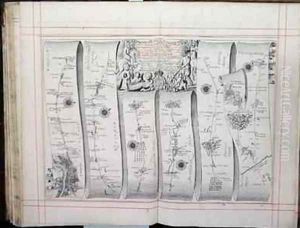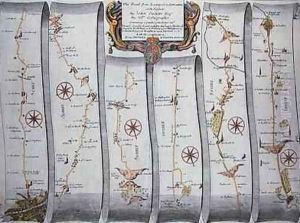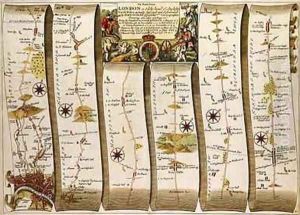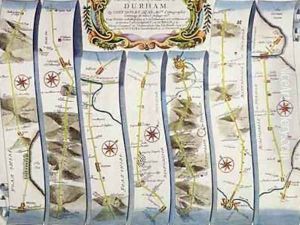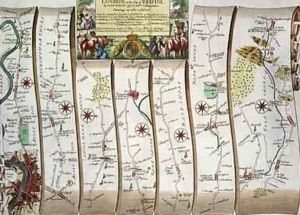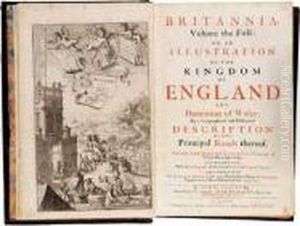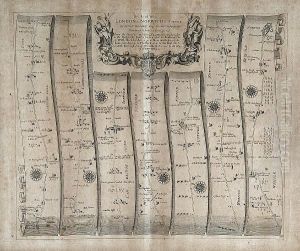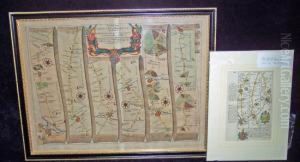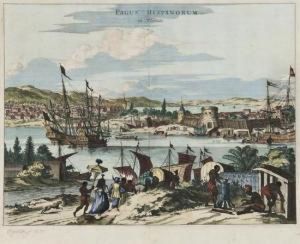John Ogilby Paintings
John Ogilby was a notable Scottish translator, impresario, and cartographer, best remembered for his significant contributions to the landscape of 17th-century British cartography and literature. His life, marked by a series of remarkable reinventions, began in Edinburgh, Scotland, in 1600. Despite an early career as a dancer and a theatre manager, Ogilby's life took a dramatic turn due to the tumultuous events of the English Civil War, which forced him to pivot towards more scholarly pursuits.
Initially making his mark through translations of classical literature, Ogilby's work on Homer's 'Iliad' and 'Odyssey' distinguished him as a scholar of considerable talent. However, it was his venture into cartography for which he is most celebrated today. Ogilby's contributions to cartography were groundbreaking; his 1675 work, 'Britannia', was the first road atlas of England and Wales that set a new standard in accuracy and detail, employing a scale of one inch to the mile for the very first time.
Ogilby's mapping endeavors were not merely technical achievements; they were also monumental works of art, richly adorned with illustrations. Beyond 'Britannia', he produced maps and plans of various cities, including a notable map of London after the Great Fire of 1666, which has been invaluable to historians. His work laid the groundwork for the future of British cartography and influenced generations of mapmakers.
Beyond cartography, Ogilby's diverse career included the establishment of Ireland's first theatre in Dublin and participation in the coronation procession of King Charles II, for which he was appointed a Master of the Revels in Ireland. Despite the diversity of his pursuits, it was his work in mapping and translation that cemented his legacy, making him a pivotal figure in the intellectual and cultural landscape of 17th-century Britain.
John Ogilby passed away in 1676, leaving behind a legacy that bridged the worlds of art, literature, and science. His innovative approach to cartography and his contributions to classical translations remain influential, reflecting a life dedicated to the pursuit of knowledge and the advancement of the arts.
